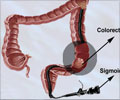Bowel Cancer is growing faster among young adults (20-29 year olds) in Europe. Several factors could be behind these trends, including obesity, lack of physical activity, alcohol intake and smoking. If trend continues screening guidelines may need to be changed.

‘Bowel Cancer is growing faster among young adults (20-29 year olds) in Europe. Several factors could be behind these trends, including obesity, lack of physical activity, alcohol intake and smoking. If trend continues screening guidelines may need to be changed.’
Read More..




Rates tend to be lower among people over 50, but the opposite is true among younger adults in North America, Australia and China, say the researchers. Read More..
And in the US, the increase in new cases among people aged 20-40 has prompted The American Cancer Society to recommend lowering the age at which to start screening to 45.
Over the past decade, the number of new cases of bowel cancer has risen in most European countries, but the situation on rates among younger adults is unclear. So to shed some light on European trends, a team of researchers analysed data from national and regional cancer registries on the number of new cases and deaths related to bowel cancer between 1990 and 2016. They used data from 143.7 million people aged 20-49 years from 20 countries, including Germany, Sweden, the UK and the Netherlands.
Between 1990 and 2016, a total of 187,918 people were diagnosed with bowel cancer and there was a steeper rise in the number of new cases in more recent years.
Among 20-29 year olds, bowel cancer incidence rose from 0.8 to 2.3 cases per 100,000 people between 1990 and 2016, and the sharpest rise was between 2004 and 2016 at 7.9 percent per year.
Advertisement
Finally, among the 40-49 years age group, the bowel cancer rates fell by 0.8 percent between 1990-2004, but then increased slightly by 1.6 percent per year from 2004 to 2016.
Advertisement
In eight countries--the UK, Greenland, Sweden, Slovenia, Germany, Finland, Denmark and the Netherlands--the number of cases rose significantly among 40-49 year olds, but rates fell significantly in the Czech Republic in more recent years (1997-2015).
The number of deaths from bowel cancer did not significantly change among the youngest adults (20-29 years), but fell by 1.1 percent per year between 1990 and 2016 in the 30-39 age group and by 2.4 percent per year between 1990 and 2009 among those aged 40-49 years.
This is an observational study, and as such, cannot establish cause. Moreover, the authors highlight some limitations, including the fact that the quality of data varied between countries and in some cases was only available for a limited number of regions.
Several factors may be behind these trends, including the rise in obesity, and lifestyle factors such as lack of physical activity, alcohol intake and smoking, they write.
Bowel cancer in young adults is "in part due to hereditary cancer syndromes, but most cases are sporadic," they add. They say that it is too early to use their findings to support lowering the screening age to 45 in Europe, but if the trend continues, screening guidelines may need to be reconsidered.
They conclude: "Until the underlying cause of this trend is identified, it would be [a good idea] to raise clinicians' awareness and identify factors possibly associated with this trend."
Source-Eurekalert















